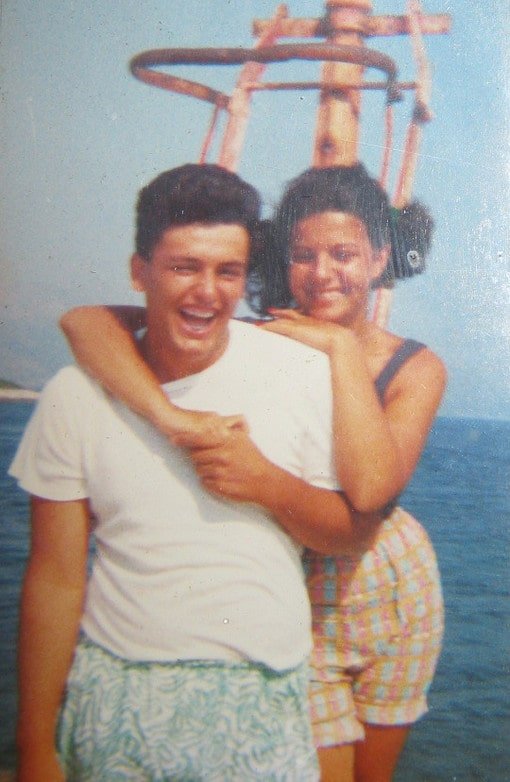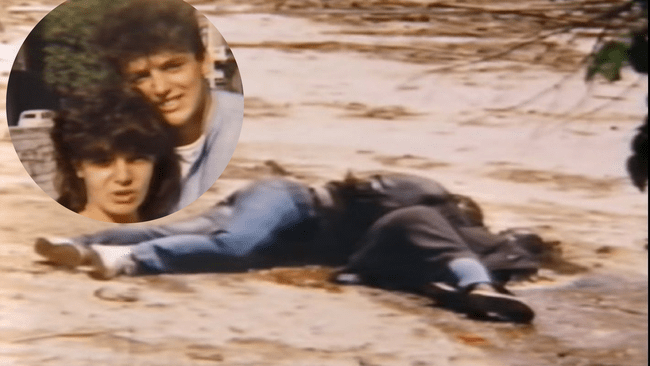Madness reigned in Sarajevo in the nineties of the last century. However, in those difficult times, movie stories happened. Boško and Admira, Sarajevo’s Romeo and Juliet, are one such story.

Boško and Admira were members of conflicting nations in the war in Bosnia and Herzegovina. Boško was a Serb, Admira was a Bosniak – a Muslim. This is a story about love in front of flags.
The story of Boško and Admira was told to the world by American journalist Kurt Schork.
Who was Kurt Schrok?
Kurt Schork was born on January 24, 1947. He became a journalist after trying several other jobs, a year before the outbreak of war in Yugoslavia. The beginnings of his journey as a war reporter start in Asia. Reuters notices him after reporting on the Gulf War. Schork stayed in the field when everyone else left and recorded the terrible fight between the Kurdish guerrillas and the Iraqi army. Because of this report, he got a job in a famous world agency.
Just one year later, Schork arrives in Sarajevo as Reuters bureau chief. He remained in the capital of Bosnia and Herzegovina throughout the war, although his numerous colleagues asked for transfers outside the war zones. His reporting kept the world focused on the war in Bosnia and Herzegovina.
He was the first to bring to the world the story of Admira Ismić and Boško Brkić, lovers who, embracing, were killed on “no man’s land” in the center of wartime Sarajevo, where their bodies remained lying for several days.

As the world learned from brief agency news, Kurt Schork died on May 24, 2000, in an ambush in Sierra Leone.
Part of Schork’s ashes rests in Sarajevo’s Lav cemetery, alongside the graves of Boško and Admira. Two years after his death, Sarajevo gave him a street. On the board next to the name Kurt Schork’s Street is written: “During the 1,335 days of the siege, he showed the whole world the truth about the war, the heroism and the magnitude of the suffering of the citizens of Sarajevo.”
The story of Boško and Admira
Boško and Admira were killed by sniper shots in 1993. They were 25 years old at the time of their death. When the war started, Boško refused to leave Sarajevo with his mother and brothers without Admira. A year after the start of the war, the two decided to leave Sarajevo and go somewhere where they could live peacefully.
They arranged for both warring parties to let them cross the “no man’s land”. That’s why it remains a mystery why they were shot at.

Admira and Boško decided to leave Sarajevo on May 18, 1993. After an agreement, through mutual friends, on both sides, they left around 5 pm across the Vrbanja bridge towards Grbavica.
Boško and Admira walked at least 500 meters along the right bank of the Miljacka. They were completely exposed to the gaze of soldiers on both sides. After they crossed the line under the control of the Bosnian side and headed towards the settlement of Grbavica under the control of the Serbs, someone hit them – wrote Kurt Schork.
They ran, holding hands tightly… First Boško was fatally shot on the bridge and then Admira was wounded. She died ten minutes later hugging the dead guy. Their bodies remained on the bridge for a whole week, when with the help of the Work Platoon they were dragged to Grbavica, a part of Sarajevo under the control of the Serbian forces.

UN forces refused to help retrieve the bodies as both sides in the conflict blamed each other for the young couple’s death. They were buried in Lukavica at the Serbian military cemetery. In 1996, according to the wishes of Admira’s parents and the consent of Boško’s mother, the bodies were transferred to the Lav cemetery in Sarajevo.
Love that inspires
It was never known from which side they shot the young couple because no investigation was ever launched. No one was ever charged with this murder.
Years after their death, a documentary was made about this couple. This international documentary film is called Romeo and Juliet in Sarajevo and was directed by John Zaritsky.
In addition, the Bosnian pop-rock group “Zabranjeno pušenje” sang about their love in their song “Boško i Admira”. Therefore, we end today’s post with the verses from this very song – “Ma kakva Julija, ma kakav Romeo, niko se nije tako volio… (“No matter how Juliet, no matter how Romeo, no one has loved each other like that.”).
Visit our social media profiles as well:
